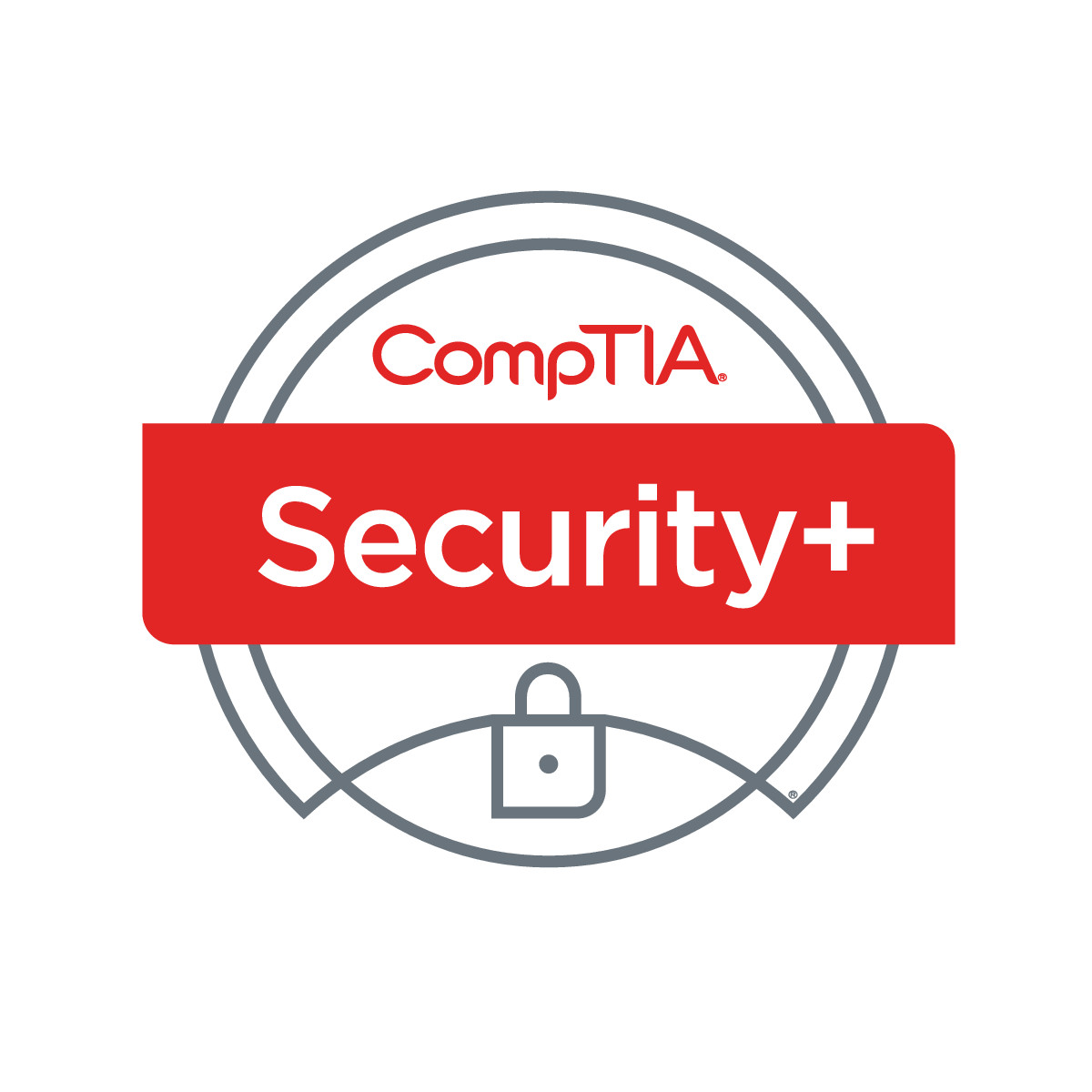CompTIA Security+
Hours: 60 / Access Length: 12 Months / Delivery: Open, Mentor Supported
Retail Price: $950.00
Course Overview:
 The CompTIA Security+ SY0-401 certification exam will be retired on July 31st, 2018. This course will be removed from our catalog on July 31st, 2018.
The CompTIA Security+ SY0-401 certification exam will be retired on July 31st, 2018. This course will be removed from our catalog on July 31st, 2018.
Gain hands-on expertise in CompTIA Security+ certification exam by course and performance based labs. Performance based labs simulate real-world, hardware, software & command line interface environments and can be mapped to any text-book, course & training. CompTIA Security+ is an entry-level, international, vendor-neutral credential designed for IT security professionals to identify risk, participate in risk mitigation activities, provide infrastructure, information, operational, and application security. CompTIA Security+ SY0-401 exam covers the application of security controls to maintain confidentiality, integrity, and availability; identification of appropriate technologies and products; troubleshooting security events and incidents, and many more.
This course includes FREE access for 12 months to a cloud based lab platform to assist students develop the practical information technology (IT) skills necessary to succeed in high in demand IT jobs. This cloud based lab solution uses real equipment that enables our students to execute each practical task in a safe environment that is accessible from anywhere without needing to buy their own hardware or risk damage to their own system.
Along with providing the necessary hardware in a virtual environment, students gain access to high quality practical exercises that cover many of the exam topics they will encounter on their certifying exams.
Course Outline:
Lesson 1: Measuring and Weighing Risk
- Risk Assessment
- Developing Policies, Standards, and Guidelines
- Summary
- Exam Essentials
Lesson 2: Monitoring and Diagnosing Networks
- Monitoring Networks
- Understanding Hardening
- Securing the Network
- Security Posture
- Reporting Security Issues
- Differentiating between Detection Controls and Prevention Controls
- Summary
- Exam Essentials
Lesson 3: Understanding Devices and Infrastructure
- Mastering TCP/IP
- Designing a Secure Network
- Understanding the Various Network Infrastructure Devices
- Summary
- Exam Essentials
Lesson 4: Access Control, Authentication, and Authorization
- Understanding Access Control Basics
- Understanding Remote Access Connectivity
- Understanding Authentication Services
- Understanding Access Control
- Implementing Access Controlling Best Practices
- Summary
- Exam Essentials
Lesson 5: Protecting Wireless Networks
- Working with Wireless Systems
- Understanding Wireless Devices
- Wireless Vulnerabilities to Know
- Summary
- Exam Essentials
Lesson 6: Securing the Cloud
- Working with Cloud Computing
- Working with Virtualization
- Security and the Cloud
- Summary
- Exam Essentials
Lesson 7: Host, Data, and Application Security
- Application Hardening
- Host Security
- Protecting Data Through Fault Tolerance
- Application Security
- Best Practices for Security
- Summary
- Exam Essentials
Lesson 8: Cryptography
- An Overview of Cryptography
- Modern Cryptography
- Using Cryptographic Systems
- Understanding Cryptography Standards and Protocols
- Using Public Key Infrastructure
- Summary
- Exam Essentials
Lesson 9: Malware, Vulnerabilities, and Threats
- Understanding Malware
- Surviving Viruses
- Understanding Various Types of Attacks
- Identifying Types of Application Attacks
- Tools for Finding Threats
- Summary
- Exam Essentials
Lesson 10: Social Engineering and Other Foes
- Understanding Social Engineering
- Understanding Physical Security
- Environmental Controls
- Control Types
- Data Policies
- Summary
- Exam Essentials
Lesson 11: Security Administration
- Third-Party Integration
- Understanding Security Awareness and Training
- Classifying Information
- Information Access Controls
- Complying with Privacy and Security Regulations
- Mobile Devices
- Alternative Methods to Mitigate Security Risks
- Summary
- Exam Essentials
Lesson 12: Disaster Recovery and Incident Response
- Issues Associated with Business Continuity
- Reinforcing Vendor Support
- Penetration Testing
- Summary
- Exam Essentials
Lesson 13: Video Tutorials
- Introduction
- Security Fundamentals and Controls
- Security and Risk
- Business Continuity and Load Balancing
- Threats, Vulnerabilities, and Assessment Tools
- Application, Data, and Host Security
- Access Control and Identity Management
- Security Controls and Cryptography
- Virtual Private Networks
- Conclusion
CompTIA Security+ SY0-401 Practice Lab:
- Trojans and Malware Protection
- Network Vulnerabilities
- Vulnerability Scanning
- Routing Protocols
- Attacks against DHCP and DNS
- Steganography
- Configuring Certificate Services
- HTTP and HTTPS
- Web Application Vulnerabilities
- Telnet and FTP and SSH
- Password Sniffing
- Baseline Security Analyzer
- Network Access Protection
- VPNs
- Data Leakage Prevention
- Computer Forensic Tools
Certification(s):
This course prepares students to take the CompTIA Security+ SY0-401 certification exam.
System Requirements:
System Requirements:
Internet Connectivity Requirements:
- Cable and DSL internet connections are recommended for the best experience.
Hardware Requirements:
- CPU: 1 GHz or higher
- RAM: 2 GB or higher
- Resolution: 1280 x 720 or higher
- Speakers / Headphones
- Microphone (Webinar / Live Online sessions)
Operating System Requirements:
- Microsoft Windows 7 or 10 (Home, Pro)
- Mac OSX 10 or higher.
- Latest Chrome OS
- Latest Linux Distributions
NOTE: While we understand that our courses can be viewed on Android and iPhone devices, we do not recommend the use of these devices for our courses. The size of these devices do not provide a good learning environment for students taking online or live online based courses.
Web Browser Requirements:
- Latest Google Chrome is recommended for the best experience.
- Latest Mozilla FireFox
- Latest Microsoft Edge
- Latest Apple Safari
Basic Software Requirements (These are recommendations of software to use):
- Office suite software (Microsoft Office, OpenOffice, or LibreOffice)
- PDF reader program (Adobe Reader, FoxIt)
- Courses may require other software that is denoted in the above course outline.
** The course outlines displayed on this website are subject to change at any time without prior notice. **